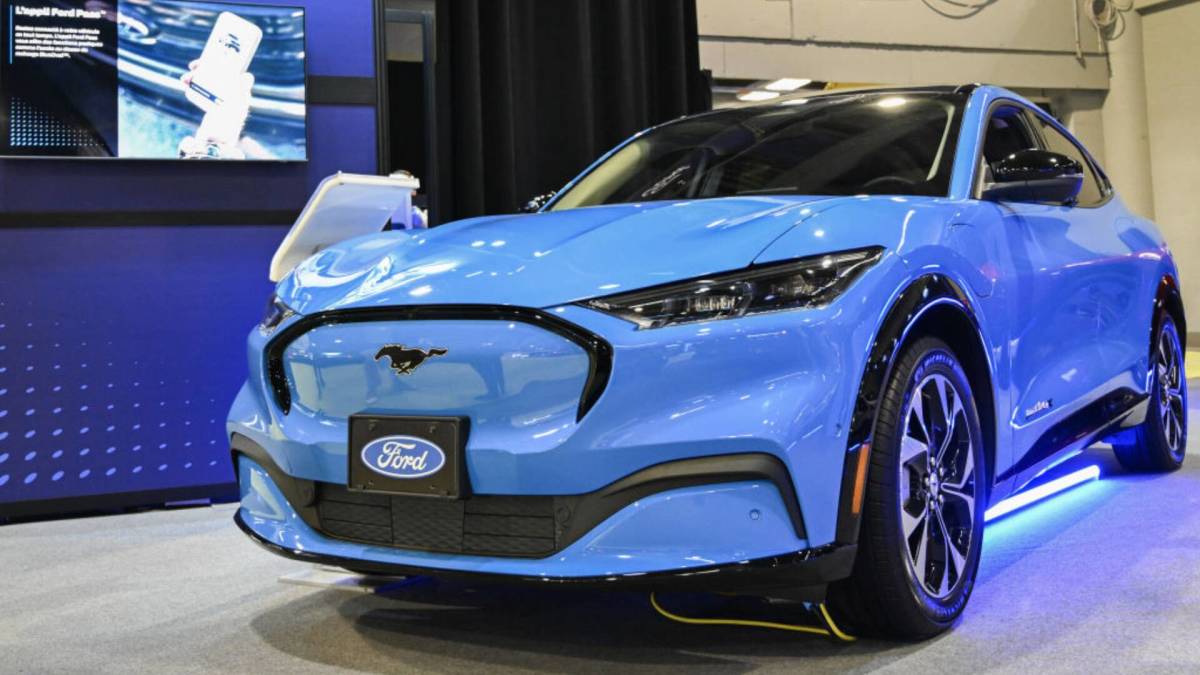President Donald Trump has stuck to his guns regarding his tariffs and the burgeoning trade war with China.
His position continues to be that the long-term benefit of the tariffs far outweighs the short-term pain U.S. consumers and producers will feel from higher prices.

But that doesn’t mean Trump has been completely intractable about tariffs. He has issued carveouts for the auto and tech industries, which happen to be sectors that spend millions of dollars lobbying the White House and Capitol Hill.
Trump was asked about this incongruency during a recent interview with NBC News. The interviewer pointed out that small businesses do not have a seat at the table to negotiate the same considerations that conglomerates like Apple and Ford have received.
Related: Ford makes a drastic decision in the face of tariff overhang
When asked whether small businesses will also receive some tariff relief, Trump replied, “Why do you always mention a couple of little businesses. What about the car business? They’re going to make a fortune because of the tariffs.“
In March, the auto industry became the first major industry to get some relief from the tariffs when the White House announced an exemption for vehicles covered by the United States-Mexico-Canada Agreement (USMCA).
The U.S. placed a 25% tariff on imported autos and auto parts, but USMCA-compliant products are exempt, saving domestic automakers billions in the process.
However, the fallout from the tariffs is hitting the industry, despite the fortunes Trump promised they’d make.
 The price of a Ford Mustang Mach-E is about to increase.
The price of a Ford Mustang Mach-E is about to increase.
Image source: Hughes/Bloomberg via Getty Images
Ford raises prices on these models due to tariffs
Ford is planning to raise prices on the Mustang Mach-E electric SUV, Maverick pickup truck, and Bronco Sport SUV by as much as $2,000 on some models, according to a notice viewed by Reuters.
Those vehicles are made in Mexico.
A Ford spokesperson confirmed that the price increases will be seen on vehicles built after May 2. Those vehicles will start arriving on dealer lots in late June.
The company emphasized that its employee pricing promotion remains for all of its vehicles through the July 4 weekend.
The company says the increase was due to its usual midyear pricing actions, but it was also “combined with some tariffs we are facing. We have not passed on the full cost of tariffs to our customers.”
“Our approach throughout this evolving situation continues to be doing what’s right for our customers – and our business,” a company spokesperson said.
On Monday, Ford said it expects to take a $1.5 billion net hit to EBITDA this year from the tariffs, though it also cautioned that it is still too early to fully gauge exactly how much disruption there will be to the global supply chain due to the duties that went into effect.
Due to that uncertainty, Ford is also suspending its guidance for the year, following in the footsteps of rival General Motors, which announced that it too was suspending its guidance due to tariffs last Tuesday.
Ford had expected EBITDA between $7 billion and $8.5 billion for the year.
Ford shares were down 1.6% in afternoon trading at last check Wednesday afternoon.
Ford is on board with Trump tariffs
Tariffs were the first topic addressed on Ford’s (F) earnings call after the closing bell on Monday, as the world waited to see how the Blue Oval would respond to the automotive industry’s new business reality.
Ford President and CEO Jim Farley said he supported the White House’s long-term vision for the industry.
“Ford supports the administration’s goal to strengthen the U.S. economy by growing manufacturing, and we also support a level playing field globally for domestic and foreign original equipment manufacturers (OEM),” Farley stated.
“We also appreciate the ongoing cooperation we’ve had with the administration. As the country’s largest auto manufacturer, our engagement with Washington is helping U.S. policymakers better understand how the proposed policy changes will impact our industries and, of course, our communities.”
But the company also said that it would take time for OEMs to shift their production to the U.S. and that balancing all of this, including potential price increases for its customers, will cost Ford money.
A lot of money.
Related: Veteran fund manager unveils eye-popping S&P 500 forecast

